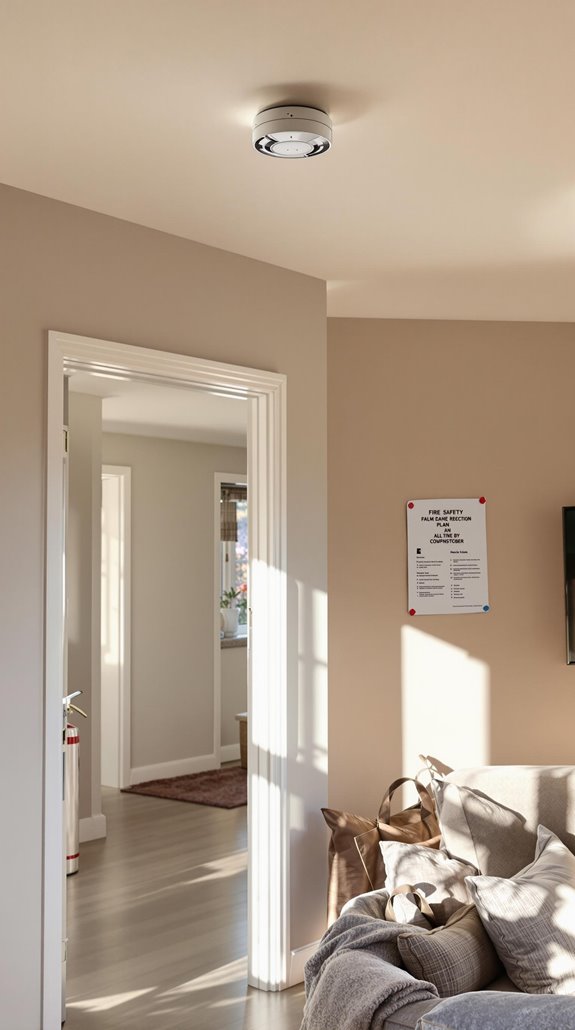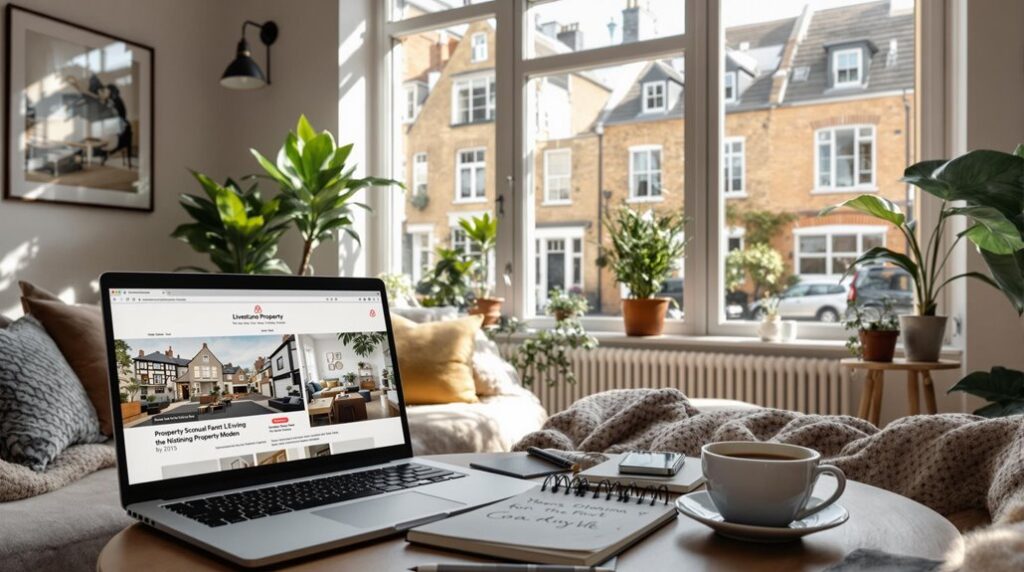I’ve seen countless property investors jump into the UK short-term letting market without proper preparation, only to face hefty fines and regulatory headaches later. The landscape has shifted dramatically in recent years, with new licensing requirements, planning permission complexities, and tax implications that can make or break your investment returns. Before you commit to that promising property listing, there are five critical considerations that’ll determine whether you’re building a profitable business or walking into a costly mistake.
Key Takeaways
- Research local short-term letting regulations including day limits, registration requirements, and mandatory licensing schemes before purchasing.
- Secure planning permission for new short-term lets in England if the property isn’t your primary residence.
- Ensure fire safety compliance with risk assessments, FD30 fire doors, alarms, and clear escape routes.
- Budget for registration costs, licensing fees, safety certificates, and potential VAT registration above £85,000 income.
- Factor in tax changes from April 2025 when holiday lets lose preferential treatment and face standard buy-to-let taxation.
Research Local Short-Term Letting Regulations Before Purchase

Before purchasing any property for Airbnb use in the UK, investors must thoroughly investigate local short-term letting regulations, as non-compliance can result in substantial fines, legal action, or forced property eviction. I’ll walk you through the essential research steps that’ll protect your investment.
Start by checking your target area’s specific day limits—London enforces a strict 90-day annual cap, while Edinburgh has different restrictions. You’ll need to verify registration requirements, as England mandates all short-term rentals register with local councils starting 2025. Additionally, be aware that many areas may have mandatory licensing schemes that could affect your ability to operate a short-term let. Don’t overlook zoning restrictions that might prohibit short-term lets in residential-only areas.
I recommend contacting the local council directly to confirm current enforcement policies, as authorities actively pursue unlicensed operators through crackdowns and prosecutions. Remember that registrations require annual renewal to ensure councils have up-to-date information on lodging properties, preventing lapses that could disrupt operations.
Factor in Planning Permission Requirements
While researching local letting regulations provides the regulatory framework, understanding planning permission requirements will determine whether you can legally operate your property as a short-term rental business.
I’ll need to assess whether my intended property use constitutes a material change from residential to commercial. From summer 2024, new dedicated short-term lets in England require planning permission if they’re not my sole or main home. The 90-night rule still applies to primary residences without permission needed. Additionally, I should be aware that conducting thorough site assessments can aid my understanding of the planning landscape.
Each region has distinct requirements. In Scotland, local councils set additional conditions and determine license costs. Northern Ireland requires valid certificates. I must consult the relevant local authority before purchasing, as they increasingly scrutinize conversions to manage housing markets and can refuse applications outright.
Converting disused spaces into Airbnb listings often requires planning permission. Properties in conservation areas may face additional restrictions, as local authorities can impose specific development conditions that affect what modifications are permitted for short-term rental operations.
Prioritize Fire Safety Compliance

Once I’ve secured planning permission, I must prioritize fire safety compliance as my next critical step. The Regulatory Reform (Fire Safety) Order 2005 amendments now mandate written fire risk assessments for all Airbnbs and short-term lets in England and Wales. Without this assessment, I can’t legally accept paying guests.
I’ll need to install FD30 fire doors that withstand fire and smoke for 30 minutes, maintain functional alarms and smoke detectors, and guarantee clear escape routes with adequate lighting. My furniture must meet fire safety standards, and I’ll provide fire extinguishers per revised guidance. I must also ensure all chimney flues are swept at least once a year to minimize the risk of chimney fires. Additionally, I must stay informed about local fire codes to ensure ongoing compliance and safety for my guests.
Non-compliance brings serious consequences: enforcement action, prosecution, fines, and potential imprisonment. The 2025 updates expand requirements to unique accommodations like glamping pods, making compliance even more critical for my investment’s success.
Budget for Registration and Licensing Costs
Beyond fire safety compliance, I must account for various registration and licensing costs that greatly impact my Airbnb investment budget.
If my annual rental income exceeds £90,000, I’ll need VAT registration, requiring me to charge guests an additional 20% VAT on bookings. While HMRC doesn’t charge registration fees, I’ll likely need professional accounting services to manage quarterly VAT returns, adding ongoing costs.
I must budget for mandatory safety certificates, particularly annual gas safety inspections if my property has gas appliances. These professional certifications aren’t optional—they’re legal requirements that protect both guests and my business.
Local council licensing fees vary considerably across different areas, so I’ll research specific requirements for my target location. Some councils impose additional registration costs for short-term rental properties, making thorough research essential for accurate budget planning. I’ll also need to factor in the cost of preparing Self-Assessment tax returns to properly declare my Airbnb income to HMRC.
Evaluate Tax Implications
Since the tax landscape for Airbnb properties has shifted dramatically with recent legislative changes, I must thoroughly evaluate the financial implications before committing to any investment.
The abolition of the Furnished Holiday Lettings regime from April 2025 represents a seismic shift in how we approach short-term rental taxation. Previously, holiday lets enjoyed preferential treatment with enhanced capital allowances and more favorable capital gains provisions. Now, they’re taxed identically to standard residential buy-to-let properties.
This change considerably impacts our investment calculations. We’ll face standard residential property tax rules, meaning limited expense deductions and restricted mortgage interest relief. The loss of accelerated capital allowances on furnishings and equipment particularly affects profitability projections.
I need to recalculate expected returns using these new parameters, factoring in higher effective tax rates that will directly impact our bottom line and investment viability. Additionally, if annual income exceeds £85,000, VAT registration becomes mandatory, adding another layer of complexity to the tax obligations.
Conclusion
I’ve outlined the critical factors you’ll need to address when purchasing a property for short-term letting in the UK. You can’t afford to overlook any of these elements—they’re interconnected and will directly impact your investment’s viability. I recommend creating an extensive checklist covering regulations, planning permissions, fire safety standards, licensing costs, and tax obligations before making any purchase decisions. Your due diligence now will prevent costly complications later.
References
- https://travellingforbusiness.co.uk/advice/property-expert-comments-on-londons-airbnb-regulations-in-2025/
- https://keynest.com/blog/england-to-strengthen-regulations-on-short-term-rentals-in-2024-heres-what-you-should-know
- https://www.phscompliance.co.uk/news/fire-safety-updates-what-uk-airbnb-hosts-need-to-know-in-2025/
- https://bnbmanagementlondon.co.uk/legal-requirements-for-airbnb-uk/
- https://airbtics.com/airbnb-rules-in-the-united-kingdom
- https://www.anlofin.com/blogs/big-tax-changes-for-short-term-lets-across-the-uk
- https://commonslibrary.parliament.uk/research-briefings/cbp-8395/
- https://hostandstay.co.uk/host/2025/01/21/understanding-the-new-hmrc-regulations-for-short-term-let-owners/
- https://www.pikl.com/airbnb-insurance/airbnb-host-guides/do-hosts-need-airbnb-planning-permission/
- https://www.accountancydaily.co/airbnb-hosts-will-need-planning-permission

